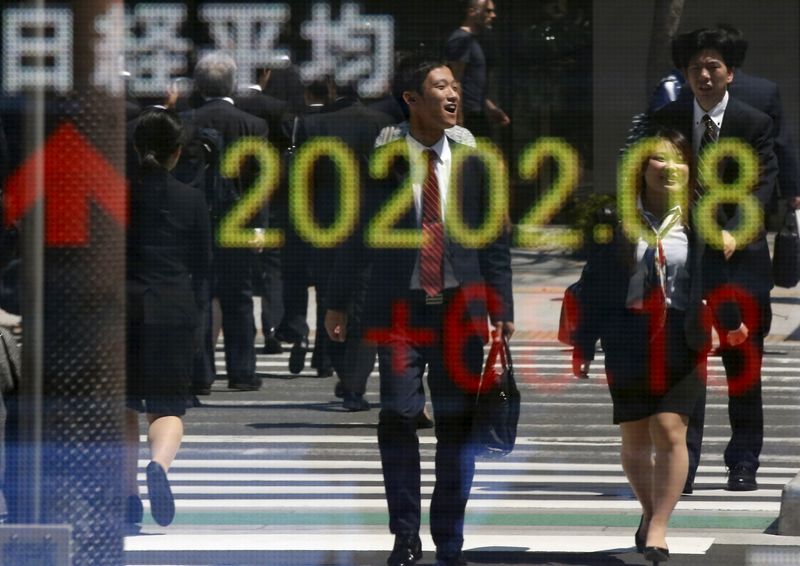By Gina Lee
Investing.com – Asian stocks were up on Monday morning with modest gains to start the week.
Japan’s Nikkei 225 was up 0.61% by 10:56 PM ET (2:56 AM GMT) even after Japan slipped into a recession in the first quarter.
The world’s third-largest economy was hit hard by the COVID-19 virus as it headed towards its worst post-World War 2 slump. The Cabinet Office also reported that gross domestic product shrank an annualized 3.4% in the three months through March from 4Q 2019.
South Korea’s KOSPI gained 0.65% and the ASX 200 led the gains as it rose 1.22%.
Hong Kong’s Hang Seng Index was up 0.36%. China’s Shanghai Composite rose 0.49% while the Shenzhen Component reversed its earlier losses and rose 0.17%.
The U.S. upped its blame game with China after White House trade advisor Peter Navarro suggested in an interview that Beijing sent "hundreds of thousands of Chinese on aircraft to Milan, New York and around the world” to spread the COVID-19 virus after hiding it from the world for two months.
The World Health Organization’s governing body will examine China’s initial handling of the virus during its first meeting since the outbreak of the virus later in the day. The meeting will also discuss the status of Taiwan’s participation.
Meanwhile, China’s National People’s Congress will get underway later in the week after a two-month delay due to COVID-19 lockdowns.
Although some European countries reported the lowest number of daily deaths since March over the weekend, investors digested global economic data giving them a stark picture of COVID-19's economic damage as some countries fight a second wave of cases after loosening lockdown measures to curb the spread of the virus.
“With the worst of the pandemic likely behind us, central bank supported equity markets are unlikely to re-test their lows,' Seema Shah, chief strategist at Principal Global Investors, told Bloomberg.
“Yet, while reopening momentum may well carry risk assets a bit higher over the near term, the tepid economic recovery and deep uncertainty over the virus outlook argue against a pivot to more risk-on positioning.”
Meanwhile, U.S. Federal Reserve Chairman Jerome Powell said overnight that the U.S. economy will recover from COVID-19, but the process could last until the end of 2021 and is dependent on the delivery of a vaccine. He added that while the recovery may take time, the Fed would deploy more ammunition if needed.
